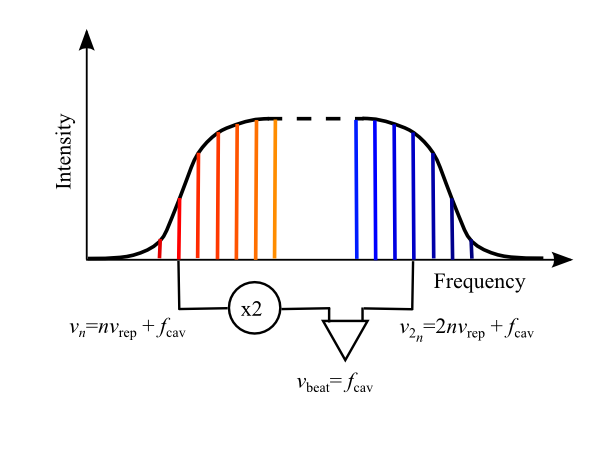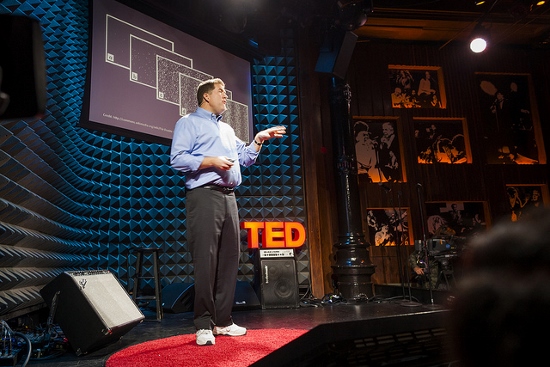Last week, Steven Weinberg wrote a piece for the Guardian promoting his new book about the history of science (which seems sort of like an extended attempt to make Thony C. blow a gasket..). This included a list of recommended books for non-scientists which was, shall we say, a tiny bit problematic. This is a… Continue reading Recommended Science Books for Non-Scientists
Category: Science Writing
Finding Extrasolar Planets with Lasers
On Twitter Sunday morning, the National Society of Black Physicsts account retweeted this: Using Lasers to Lock Down #Exoplanet Hunting #Space http://t.co/0TN4DDo7LF — ✨The Solar System✨ (@The_SolarSystem) September 28, 2014 I recognized the title as a likely reference to the use of optical frequency combs as calibration sources for spectrometry, which is awesome stuff. Unfortunately,… Continue reading Finding Extrasolar Planets with Lasers
The Edge of the Sky by Roberto Trotta
I get a fair number of books to review, but I’m often pretty bad about writing them up in a timely manner. Of course, most of them are well over 70 pages long, which is why I’ve managed to turn around Roberto Trotta’s The Edge of the Sky: All You Need to Know About the… Continue reading The Edge of the Sky by Roberto Trotta
Nordita Workshop for Science Writers, Day Two
The second day of the “Quantum Boot Camp” was much lighter on talks. The only speaker was Ray Laflamme from the Institute for Quantum Computing in Waterloo, who gave a nice introduction to quantum technologies. While he did spend a bit of time at the start going through Shor’s algorithm for factoring numbers (following up… Continue reading Nordita Workshop for Science Writers, Day Two
The Internet Exists Because of (Schrödinger’s) Cats
I’m working on some short pop-quantum explainers for reasons that I’ll be a little cagey about. In casting around for a novel way to introduce Schrödinger’s cat states, I hit on something that probably works, but illustrates the problems inherent in being both a professional physicist and a pop-science writer. The hook, as I mentioned… Continue reading The Internet Exists Because of (Schrödinger’s) Cats
What I’m Doing This August: Nordita Workshop for Science Writers
I’ve been setting up schedules with my summer research students lately, and the main constraint we’re facing with that is that I’m going to spend most of August in Europe. Part of this is pure vacation– Kate and I are going to the UK for a couple of weeks. Part of it is the World… Continue reading What I’m Doing This August: Nordita Workshop for Science Writers
Music Writing and Science Writing
No, this isn’t another blog post lamenting the fact that music writing gets far more attention than science writing. If anything, it’s a bit of an argument that science writing ought to be less like popular music writing. On Twitter this past weekend Jim Henley, one of the few bloggers I consider “old school” (the… Continue reading Music Writing and Science Writing
The New SAT, Reading, Gaming, and Jargon
Given the academic circles I run in, it’s not surprising that one of the most repeated stories crossing my social media feeds yesterday had to do with the changes to the SAT. Starting in 2015, the essay section will no longer be mandatory, and they’re going to reconfigure the reading and math sections to emphasize… Continue reading The New SAT, Reading, Gaming, and Jargon
Science Journalism vs. Sports Journalism
Over at Backreaction, Bee takes up the eternal question of scientists vs. journalists in exactly the manner you would expect from a physicist: she makes a graph. Several of them, in fact. It’s generally a good analysis of the situation, namely that scientists and journalists disagree about how to maximize information transfer within the constraints… Continue reading Science Journalism vs. Sports Journalism
Work. Finish. Publish.
A couple of days ago, John Scalzi posted a writing advice open thread, asking people to share the best advice they’d gotten on the craft of writing. There’s a lot of good stuff in there, much of it fairly specific to fiction writing– stuff about plotting, the use of synonyms for “said,” how to keep… Continue reading Work. Finish. Publish.

